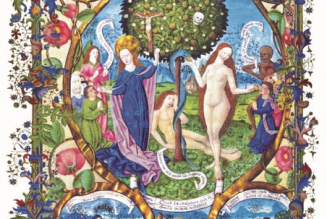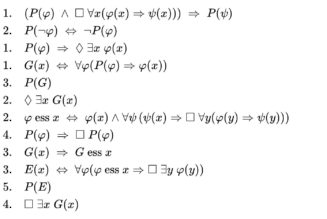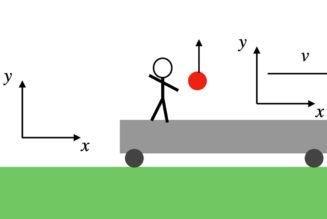By Phil Lawler ( bio – articles – email ) | Nov 25, 2024
When I started the car this morning, a message appeared on the dashboard: “Roads may be icy.”
Right. We’ve had very little rain here for the last several weeks, and the roads are dry. But the temperature was below freezing early in the morning— as it will be, off and on, for the next three or four months— so the reminder was useful. Noted.
As I pulled out of our little dirt lane, another message appeared, warning me that I was low on fuel. Not very low, actually; the car’s computer calculated that I could drive another 70 miles before I hit empty. So that alert would be helpful if I had been planning to drive across the Mojave Desert. As it happens, in the next few days I have no plans that will take me more than a mile or two from the closest gas station, so the early warning wasn’t necessary. But under different circumstances it might have been, so I had no complaint.
But then, a mile or two later, another message appeared. This time the warning was not just a few words on display above the speedometer. The large screen with the navigation map suddenly went black, and white letters ominously announced a “Winter Weather Advisory.” I had not programmed the car to send me weather bulletins; this was something entirely new. Someone, somewhere had updated the system to send these alerts, to tell me when I should be worried about the weather.
That someone— or the software he had remotely installed on my car’s computer— thought I should know that winter weather was on its way. Thank you, my solicitous friend, but actually I knew that already. I live in New England. It’s late in November. Winter is coming.
And what was the substance of that Winter Weather Advisory? Was it warning of a blizzard, an ice storm, a late-season hurricane? No; the screen only told me that the “weather,” whatever it was, would arrive in the wee hours of tomorrow morning. At that time I expect to be safely home in bed, and since my house has survived 160 Massachusetts winters, I feel confident that it can handle whatever Mother Nature will dish out tonight. So I punched the “X” button on the screen to close the alert.
Another mile later the same alert came back on. Beneath the alert was a button marked “Settings,” and no doubt by selecting the right options from the menu that brought up, I could arrange to stop the alerts. But I was busy driving, and if I concentrated on punching buttons on the screen, rather than watching the oncoming traffic, I would be a menace to myself and others— a far greater menace, by the way, then whatever storm was coming early tomorrow morning. So I ignored the advisory, grumbled, and waited until I had reached my destination before choosing the settings that would spare me from unnecessary alarms.
Then when I reached home again, I checked the weather forecast. (My car doesn’t know this, but I have other ways of receiving weather advisories. The newspaper, radio, television, computer, and cell phone all stand ready to provide me with the forecast. I really don’t need my car to join the chorus.) Here’s what it said I could expect tomorrow:
Rain likely. High around 45F. Winds NNE at 5 to 10 mph. Chance of rain 90%. Rainfall around a quarter of an inch.
Now tell me: Does that sound like a forecast that should prompt a sudden “advisory” to distract a driver from the 18-wheeler heading downhill toward him? It’s going to rain. Tomorrow. We need rain. OK, it may at times be fairly heavy rain. Things will get wet. And then the roads may be icy.
How many times, in the past five years, have the forecasters told us to prepare for more than a foot of snow in a week’s time, only to see the predicted total slide down to six inches, then three inches, then a dusting? How often have the storm tracks shown that a hurricane could pound us with 100-mile-an-hour winds, only to see the storm head out to sea? True, sometimes the dangerous storms do hit us, and then we are grateful that the warnings gave us time to prepare. But far more often the warnings are (like the storms) overblown, because they are sent out too early, by forecasters who are only speculating about a worst-case scenario.
We live today in a climate of fear. Our political leaders lecture us about the risks of a nuclear war, stock-market crash, a fascist takeover, or a terrorist attack. Public-health officials tell us to fear a virus and a food additive and a tick and a new breed of murderous hornets. Meteorologists warn us that we might face unusually cold weather or warm weather or snowstorms or drought. The mass media gleefully carry all the dire predictions, because bad news sells. (Be honest: if the television weatherman tells you that it’s going to rain tomorrow, you barely notice. If he warns of possible flash floods, you’re far more likely to stay tuned for more details.)
Could we all please stop, relax, and tune out the fear? Bad things will happen, I know: storms and wars and riots and diseases. But what’s the use of worrying about them in advance? “A coward dies a thousand times before his death,” Shakespeare observed. Say a prayer, go to Confession, take a deep breath, and enjoy life.
The weather is beautiful here today. Thanks for asking. There’s a nip in the air, but that’s to be expected. Winter is coming. I love winter.
Sound Off! CatholicCulture.org supporters weigh in.
All comments are moderated. To lighten our editing burden, only current donors are allowed to Sound Off. If you are a current donor, log in to see the comment form; otherwise please support our work, and Sound Off!











